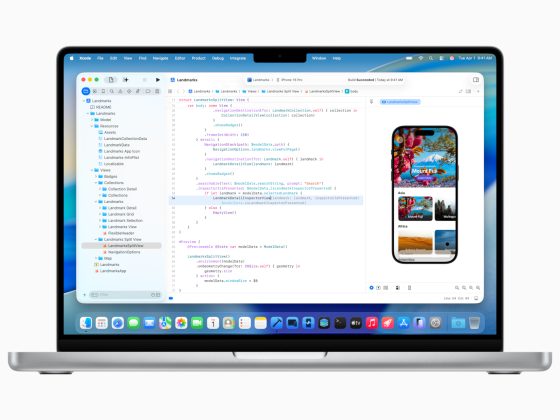The DBS 2020 Digital Treasurer Survey has revealed that businesses in Singapore continue to lead in digitalisation efforts across the Asia-Pacific (APAC).
Polling around 1,700 corporate treasurers, CEOs, CFOs and business owners across the region, the survey showed that in terms of digital readiness, close to half (45%) of Singapore’s corporates have a well-defined strategy – the highest proportion in APAC, overtaking Japan’s pole position in the bank’s 2019 Digital Treasury Survey. This was followed by Hong Kong (44%) and Japan (41%). The survey also revealed that businesses in the Philippines (10%) and Vietnam (8%) were the least digitally-ready.
Comparing businesses in APAC to their global peers from the USA and UK, it seems that both of these mature markets had a significantly larger proportion of businesses with a well-defined digital strategy. For instance, almost half of businesses in the USA and UK have a well-defined strategy, as compared to two in 10 in APAC.
Tan Su Shan, Group Head of Institutional Banking, DBS Bank, said, “The impact of technology on businesses has never been more apparent than now. Amid the storm that the pandemic has caused, digital solutions have become a lifeline for most businesses globally, regardless of size or industry. This is also where having a clearly-defined strategy will help to separate the victors from the losers in times of uncertainty. As we embark on the ‘next normal’, we must chart a new direction and stand ready to constantly change and adapt to new circumstances. With major and likely irrevocable shifts in consumption, work and travel patterns brought about by Covid-19, the coming decade will be more disruptive than the last, and businesses have to be ready for a lifelong journey of metamorphosis to survive and thrive.”
More external pressure to digitalise
Amid a more competitive landscape characterised by supply chain disruptions and with Covid-19 hastening the pace of digitalisation, almost all businesses in the region (99%) have indicated that they are facing external pressure to transform digitally. Key pressure points driving the need to change include changing consumption patterns from their customers and key markets, competitors and growing supply chain complexities. While businesses surveyed understood the need for change, the same businesses are also facing obstacles in adopting new technology with the top three challenges cited as the speed of change (80%), execution complexity (75%) and lack of digital talent (64%).This is vastly different from the USA and UK where nine in 10 businesses cited that their main challenge was to keep up with the regulatory environment, supporting the perception that both markets have easier access to a pool of digital talent.
In terms of digital spend, cash management (33%) and trade/supply chain financing (30%) represent the two biggest investment areas for APAC businesses. This mirrors the preference of businesses in the UK where six in ten (60%) are focusing their investments on trade and supply chain financing-related technology, while in the US, corporates are dedicating the bulk of their spending to risk & compliance reporting (34%) and cash management (26%) solutions.
Banks viewed as most favoured digitalisation partner in APAC
Banks remain the most popular partner for businesses in APAC to keep abreast of fintech innovations and identify the right solutions, with seven in 10 businesses citing this preference – in line with last year’s survey findings (69%). This is especially prevalent in Vietnam (90%), Indonesia (84%), Thailand (82%), Malaysia (80%), and South Korea (76%) where businesses tend to be more dependent on their banking partners for strategic guidance. In the UK, the level of preference for bank guidance (69%) is also similar to that of APAC (70%).
Banks are less preferred in the US (47%), however, as businesses prefer to engage with fintech companies directly (89%). This trend is also prevalent in developed APAC markets such as Singapore (80%), Hong Kong (73%) and China (69%), where businesses prefer regular contact with fintechs.
Digital trends ahead
The use of APIs and enterprise cloud solutions in bank connectivity is expected to continue gaining traction among businesses large and small across the region. APIs remain the most popular mode for bank connectivity with almost half of APAC businesses (48%) using it in their current operations as compared to cloud-based solutions (31%). But a big shift to cloud is expected in the next three years as it has proven to be a useful tool for businesses to migrate data seamlessly.Six in 10 (59%) businesses in APAC are looking to implement cloud-based solutions in the next three years – as compared with 50% and 68% in the US and UK respectively – with close to three in 10 (29%) businesses planning to implement cloud infrastructure in the coming 12 months.
John Laurens, Group Head of Global Transaction Services, DBS Bank, said, “The Enterprise Resource Planning, accounting, treasury and various other business systems that companies, big and small, employ in their businesses are progressively being moved to cloud. The software companies providing these incumbent systems are also progressively reducing support for their legacy applications. At DBS, we have therefore made significant investments into cloud and API-based services as well as systems connectivity, recognising these emerging and vital needs of our customers.”
DBS continues to support businesses in navigating the next normal
As Singapore and the world adapts to the changes brought upon by Covid-19 disruptions, companies are increasingly seeing the value of going digital and accelerating their digitalisation plans.“The Covid-19 pandemic is the crisis of a generation and has reset the way countries and businesses operate. It has forced many to rethink their strategies to ensure their sustainability. However, every crisis also has its silver lining and there is no better time for corporate leaders to grab the bull by its horns and re-engineer their business blueprints quickly to adapt to the changing landscape to build our businesses back better and stronger,” said Ms Tan.
To help corporates better understand the implications and opportunities from the shifting landscape, DBS will be holding its annual DBS Digital Day over 14, 16 and 18 September 2020, bringing together leaders from both the public and private sectors, subject matter experts, corporate clients and employees to share about their experiences and insights in harnessing digital solutions to navigate the new normal.
Notable speakers at the event will include S Iswaran (Minister for Communications and Information and Minister-in-charge of Trade Relations), Conor McNamara (Managing Director of Amazon Web Services ASEAN), Jeremy Palmer (CEO at QuantumBlack), Soon Sze Meng (President, South East Asia for JD.com), and senior DBS leaders Piyush Gupta (Group CEO), Tan Su Shan (Group Head of Institutional Banking) and John Laurens (Group Head of Global Transaction Services).
DBS also continues to regularly engage its corporate clients through virtual co-creation workshops to keep businesses abreast of the latest digital solutions, with more than 150 co-creation workshops carried out to-date.
About DBS
DBS is a leading financial services group in Asia with a presence in 18 markets. Headquartered and listed in Singapore, DBS is in the three key Asian axes of growth: Greater China, Southeast Asia and South Asia. The bank’s “AA-” and “Aa1” credit ratings are among the highest in the world.
Recognised for its global leadership, DBS has been named “World’s Best Bank” by Euromoney, “Global Bank of the Year” by The Banker and “Best Bank in the World” by Global Finance. The bank is at the forefront of leveraging digital technology to shape the future of banking, having been named “World’s Best Digital Bank” by Euromoney. In addition, DBS has been accorded the “Safest Bank in Asia” award by Global Finance for 11 consecutive years from 2009 to 2019.
DBS provides a full range of services in consumer, SME and corporate banking. As a bank born and bred in Asia, DBS understands the intricacies of doing business in the region’s most dynamic markets. DBS is committed to building lasting relationships with customers, and positively impacting communities through supporting social enterprises, as it banks the Asian way. It has also established a SGD 50 million foundation to strengthen its corporate social responsibility efforts in Singapore and across Asia.
With its extensive network of operations in Asia and emphasis on engaging and empowering its staff, DBS presents exciting career opportunities. The bank acknowledges the passion, commitment and can-do spirit in all of our 29,000 staff, representing over 40 nationalities. For more information, please visit www.dbs.com.









